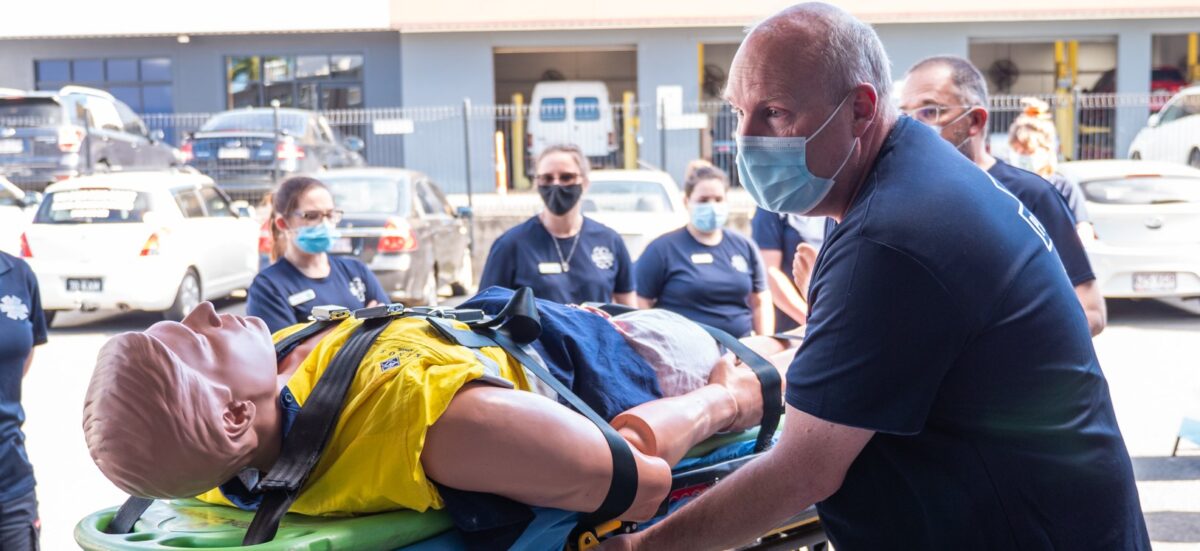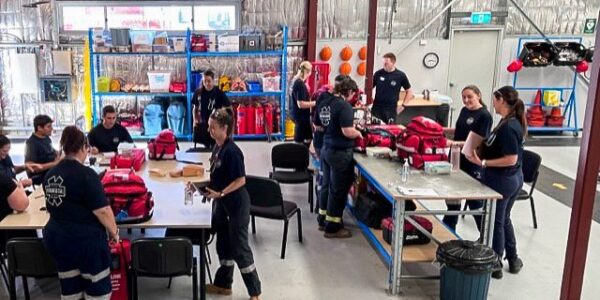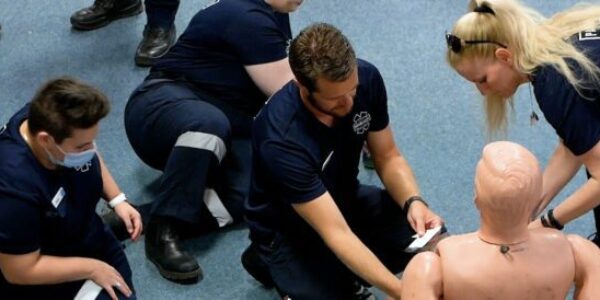Published on 28th August, 2023.
The Health Care and Social Assistance industry is not only the largest employer in Australia, it’s also the fastest growing too! In the five years leading up to November 2026, Australia is expected to create 301,000 jobs in this sector. Keep reading to learn about healthcare jobs and their respective salaries that could be on the horizon for you too, once qualified.
What impacts your salary?
Before we delve into healthcare salaries, it is worth noting the average salary in Australia as a whole. According to Talent.com, based on 10,000 salaries submitted, the average salary in Australia is $72,500.*
Salaries can depend on several factors, such as age, experience, qualifications, residing locations and even the company you work for. It’s not always black and white, and takes into consideration other external factors and individual benefits too. These are inclusive of but not limited to, overtime, bonuses, working on public holidays and more.
The good news for you is in Australia, salaries are generally higher than those in other countries. This is thanks to labour laws, our robust economy and a higher cost of living too.*

*Source: The Migration (2023)
What salary offerings are there?
There is a plethora of pathways you can take upon graduating from Australian Paramedical College (APC) – so let’s explore them!
Patient Transport Officer (PTO)
A Patient Transport Officer (PTO) is responsible for providing patient transport services in non-emergency capacities. Whilst situations can vary, you can often find yourself offering transportation services to and from home, medical centres, aged care facilities, hospitals etc.
As a PTO, you can find yourself working in either the public or private sector. Due to this, salaries can vary, as qualifications can too. On average, a PTO can receive $57,600, with entry positions starting at $55,100 and going up to $68,900.*
Studying APC’s HLT31120 – Certificate III in Non-Emergency Patient Transport could be the perfect place to start as it’s specifically designed to help you gain employment as a PTO!
*Source: Talent.com (2023)
Ambulance Transport Attendant (ATA)
Ambulance Transport Attendants (ATA) hold a similar responsibility to a PTO but are generally more advanced in the care they provide. Instead of providing non-emergency transport, the transport services provided can involve emergency cases that require you to transport patients from the scene of an accident.
ATAs can gain between $40,000 to $107,700, averaging $71,100 annually.*
If you’re wishing to pursue a career as an ATA, we suggest that you look into studying a HLT41120 – Certificate IV in Health Care. It provides students with an understanding of basic-life support, further equipping them with the knowledge, practical skills and confidence to deliver pre-hospital care to their patients.
*Source: World Salaries (2023)
Medical Emergency Services Officer (MESO/ESO)
Medical Emergency Services Officers (MESO) or Emergency Services Officers (ESO) are responsible for emergency response on industrial sites, popularity in mine sites. Within the role you’re not just responsible for the medical side of things, you’re also responsible for vaccinations, random drug and alcohol testing, mental health assessments and more.
Salary-wise, on average you can expect to earn between $110,000 – $150,000 with opportunities for growth as your experience and qualifications increase.*
To become a MESO you’ll generally need two core qualifications – HLT51020 – Diploma of Emergency Health Care and a RII30719 – Certificate III in Emergency Response and Rescue. APC is proud to directly offer the Diploma, and be in partnership with Fire and Safety Australia to offer the Cert III.
Learn more about our partnership here.
*Source: Jora (2023)
Emergency Medical Technician/Event Medic (EMT/EM)
As an Emergency Medical Technician (EMT) or Event Medic (EM), you are responsible for providing basic to advanced healthcare assistance to individuals at an array of events. One day you can be at a sporting event, the next at a music festival and the following on a movie set! The opportunities are endless.
You can expect an average salary of $70,000, depending on the residing state, experience and company you work for. *
If you’re interested in pursuing a career as an EMT or EM, there can be two courses to choose from. APC’s HLT41120 – Certificate IV in Health Care could allow you to gain employment within the position, whereas the HLT51020 – Diploma of Emergency Health Care may be able to give you a competitive advantage when applying for the position in the industry with a more advanced life support scope of practice.
*Source: Glassdoor (2023)
Offshore Medic
Typically working within the oil and gas industry, a career as an Offshore Medic is not for the faint of heart. On call 24/7, you’re responsible for the health and safety of everyone on board and generally work 2-3 weeks on to then have 2-3 weeks off.
As an Offshore Medic, you can expect an average salary of $111,400, with food and accommodation provided whilst on shift.*
A minimum of three years of paramedic experience, combined with additional qualifications is typically required when applying. If you’re wondering where to start, a HLT51020 – Diploma of Emergency Health Care could be the perfect place. Studying at APC can provide you with the foundational knowledge and practical skills you need to get on the pathway to university to become a paramedic and get that much-needed experience.
*Source: Jooble (2023)
Remote Medic
A Remote Medic or Remote Paramedic can work in several industries or locations, whether it is on land or water, you need to be able to care for and stabilise patients during their time of need and in unpredictable environments.
If you’re wanting to work as a Remote Paramedic, you can expect an average salary of $109,000.*
Much like an Offshore Medic, you’ll generally need to have a few years of paramedic experience under your belt before applying for the job. From this, we recommend individuals consider the HLT51020 – Diploma of Emergency Health Care to begin their pathway to becoming a remote medic. This emergency response course is specifically designed to help you build the knowledge, practical skills and empathy to deliver exceptional pre-hospital care before taking the next step to university.
*Source: Jooble (2023)
Registered Paramedic
Whether working in the public sector or private, a Paramedic’s role is essential to saving lives. Every day is different, and you can be required to attend an array of incidents from car crashes, heart attacks, sporting injuries and more.
All in all, the salary of a Paramedic is dependent on the sector you work in, plus your residing state. Nonetheless, findings have shown that the average salary for a Paramedic in Australia is $128,700 so you have an idea of what to expect if you’re interested in this career pathway.*
At APC, we find that a vast number of our students wish to become Paramedics, which is why we’ve created a Diploma pathway to assist students in the transition from APC to university, and into life beyond! If you’re interested to learn more about this pathway, click here.
*Source: Glassdoor (2023)
Get job-ready!
All of the above careers (and more) can be pursued by studying with APC, so why not get in touch with us today to start training towards the career you’ve always wanted?
Learn more about our career pathways here, or contact us directly today here.


